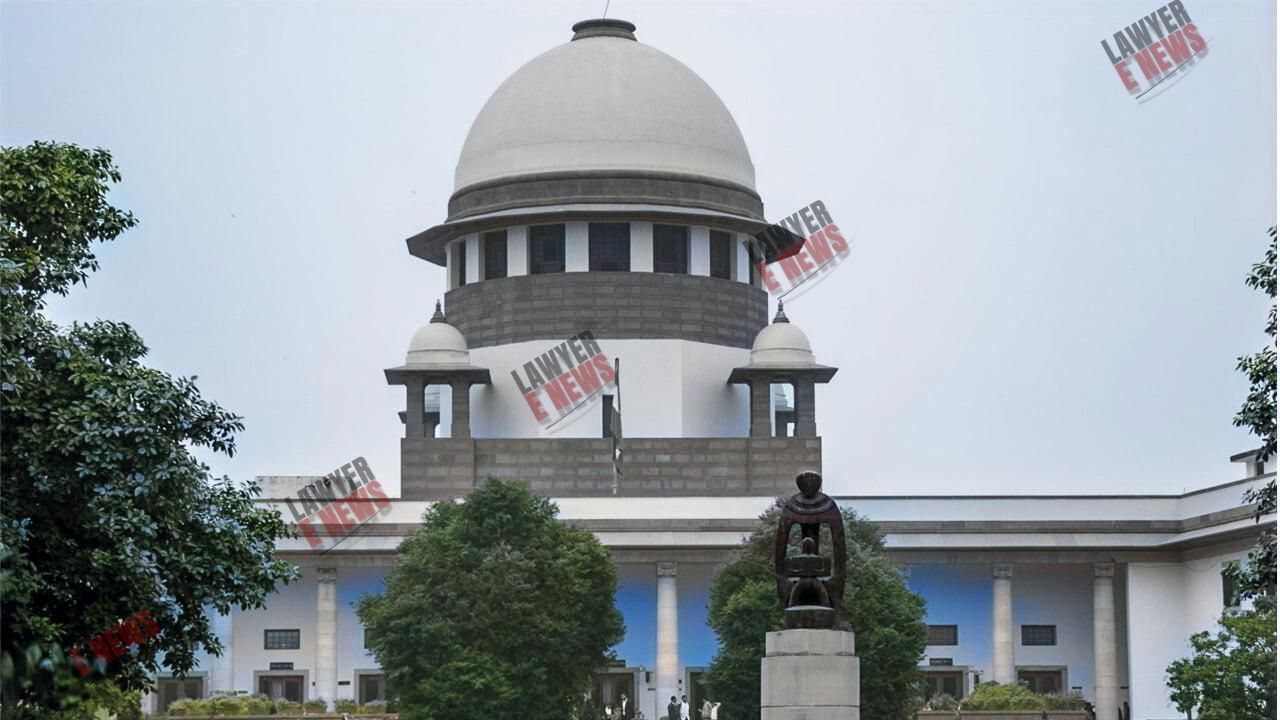-
by Admin
16 February 2026 4:21 AM



Refund of Court Fees is Allowed Only When Settlement Occurs Through a Recognized Dispute Resolution Mechanism – Supreme Court dismissed a petition seeking refund of court fees on the ground that the litigation was resolved through a private out-of-court settlement.
A bench comprising Justice Pankaj Mithal and Justice Ahsanuddin Amanullah ruled that refund of court fees is permissible only when a case is settled through arbitration, conciliation, judicial settlement, Lok Adalat, or mediation. Since the settlement in the present case did not take place through any of these legally recognized mechanisms, the petitioner was not entitled to a refund.
The case originated from a second appeal before the High Court, which was disposed of on the basis of a mutual settlement reached between the parties. Following the settlement, the petitioner, Jage Ram, sought a refund of the court fees paid at three levels—trial court, first appellate court, and second appellate court—amounting to ₹29,053 in the second appeal alone.
The High Court rejected this plea, holding that court fees can be refunded only in cases where the matter is resolved through an alternative dispute resolution (ADR) mechanism recognized under law. Aggrieved by this decision, the petitioner approached the Supreme Court under a Special Leave Petition (SLP).
The Supreme Court examined whether a refund of court fees was legally permissible when a case is settled privately and outside the court, without reference to arbitration, conciliation, mediation, or Lok Adalat.
The Court categorically held: "The refund of court fees is permissible only if the matter is referred to arbitration, conciliation, judicial settlement, including through Lok Adalat or mediation for settlement and the case is decided in terms of such a settlement and not otherwise."
Since the present case involved a private settlement without court intervention, the Court ruled that the petitioner "is not entitled to refund of the court fees, and the High Court has not committed any error or illegality in refusing such a prayer."
Private Settlement Does Not Qualify for Court Fee Refund Under Section 16 of the Court Fees Act, 1870
The petitioner relied on Section 16 of the Court Fees Act, 1870, which provides for a refund of court fees when a case is settled without contest. However, the Supreme Court clarified that this provision applies only when the settlement occurs through legally recognized means, such as arbitration, mediation, Lok Adalat, or judicial settlement.
Referring to previous rulings, the Court observed: "The provision for refund of court fees is meant to encourage settlement through recognized alternative dispute resolution mechanisms. If refunds were permitted for private settlements, it would lead to misuse of the provision and unnecessary financial burden on the state exchequer."
The Court reaffirmed its position by relying on the following Supreme Court and High Court precedents:
In State of Punjab v. Jalour Singh, (2008) 2 SCC 660, the Supreme Court had earlier held: "The refund of court fees can be granted only when a matter is settled through Lok Adalat or judicial intervention. Private settlements do not entitle parties to claim a refund."
The Court also cited High Court of Judicature at Madras v. M.C. Subramaniam & Ors., (2021) 2 SCC 243, which stated: "A refund of court fees is a statutory concession and cannot be claimed as a matter of right unless the case is resolved through recognized ADR mechanisms."
Similarly, in Delhi Transco Ltd. v. GMR Ambala Chandigarh Expressways Pvt. Ltd., (2022) SCC OnLine Del 3787, the Delhi High Court had held:
"Private settlements, unless facilitated through a recognized judicial or statutory forum, do not qualify for court fee refunds under the law."
The Supreme Court upheld the High Court’s decision and dismissed the Special Leave Petition, concluding: "As the settlement in the present case was out-of-court and not through any recognized dispute resolution mechanism, the petitioner is not entitled to a refund of court fees."
Accordingly, the petition was dismissed, and all pending applications were disposed of.
This ruling reaffirms the limited scope for refund of court fees, ensuring that only cases resolved through legally recognized dispute resolution mechanisms qualify for such benefits. It serves as an important precedent in preventing misuse of court fee refund provisions in cases of private settlements.
Date of Decision: 28/01/2025
